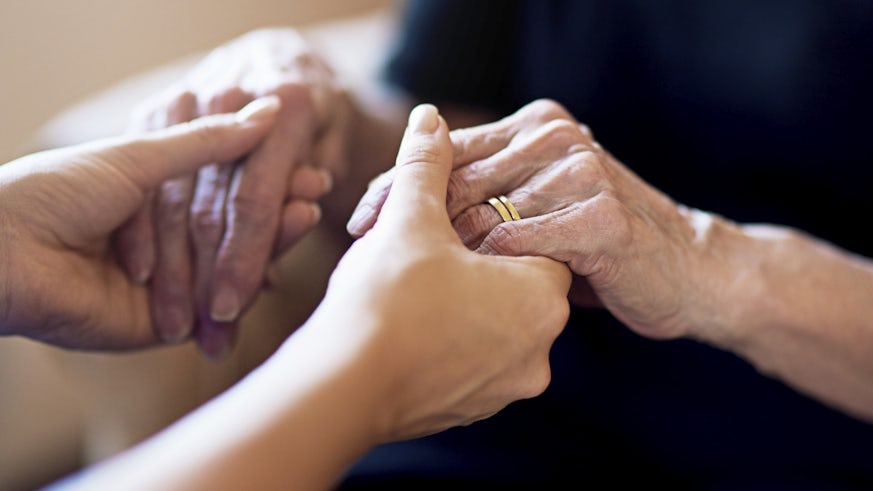Better care for dying people
2 November 2016

Research at the Marie Curie Palliative Care Research Centre at Cardiff University highlights the urgent need for better care for dying people and more support for the relatives and professionals who look after them.
A survey of over 1400 carers, including family members, friends, and healthcare workers, reveals that the main areas of frustration are difficulties in access to care and treatment, particularly out of working hours; poor coordination between health and social services; and a general lack of communication and understanding around death and dying.
The aim of the survey was to identify questions for health-related research. However, analysis of the data revealed that many of the responses related to personal experience, anecdotes and questions rather than clinical research.
A newly published report, funded by the Economic & Social Research Council (ESRC), was therefore commissioned to analyse the survey data in more detail.
Common concerns of respondents include:
- deciding on the best place for a relative to die
- a lack of out-of-hours support
- the taboos surrounding death
- finding information about treatment options, understanding symptoms such as pain and agitation, nutrition, and the use of medication such as morphine
- access to routine or specialist services, therapies and equipment to enable better care at home
- the needs of patients with dementia and other non-cancer terminal conditions such as motor neurone disease or multiple sclerosis
- poor coordination between health and social care services and bad communication between families and health and social care professionals
- the lack of financial support and benefit packages which include home care
- the emotional needs of people caring for loved ones at home and the lack of support for bereaved relatives.
- the language of terminal care
Dr Annmarie Nelson, Scientific Director, Marie Curie Palliative Care Research Centre, who led the research, commented, “These findings confirm the results of a recent report commissioned by the charity Marie Curie, which found that more than 110,000 people affected by terminal illness in the UK are missing out on the care and support they need each year..."

"Seven out of ten carers say that people with a terminal illness don’t get all the care and support they need and only 15% of health and social care professionals think that people with a terminal illness have their care needs adequately met by emergency services.”
Recent reports confirm that palliative and end of life care is still an under-resourced and under-researched specialty. Funding for research at the end of life in recent years is below 0.16% of the total spent on health research in the UK.
The survey was carried out in 2014 by the Palliative and end of life care Priority Setting Partnership (PeolcPSP) with the James Lind Alliance (JLA).
